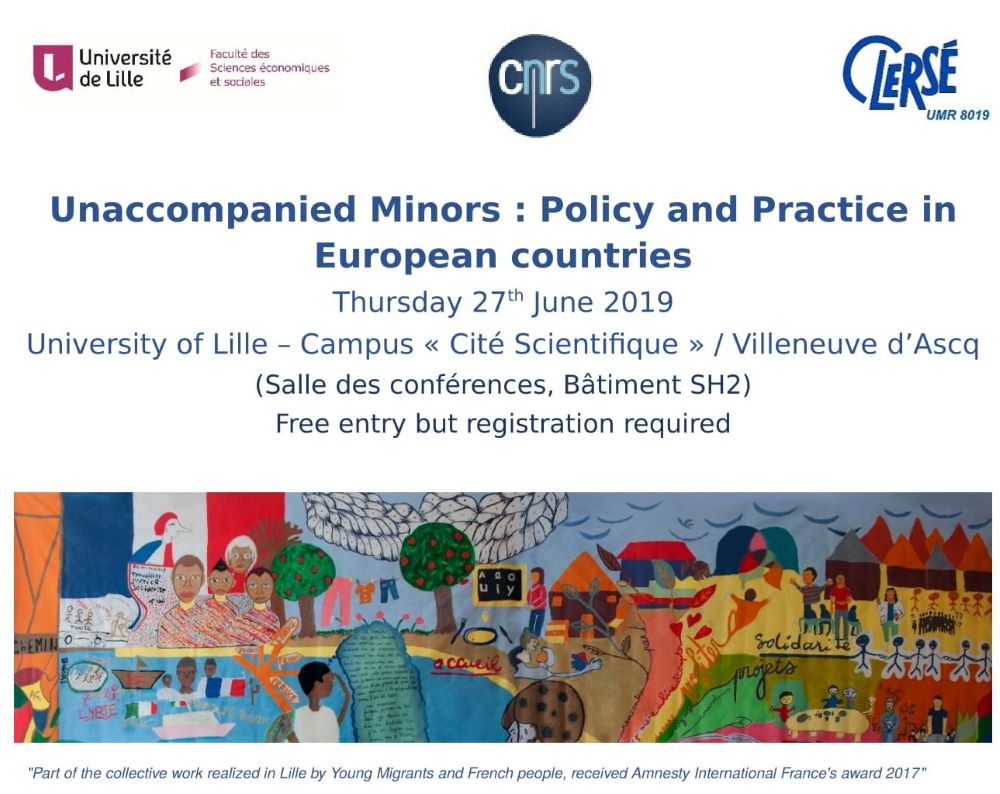
|
Presentation PresentationIn many European countries, the number of unaccompanied migrant children and adolescents has increased in recent years. Countries that have ratified the Convention on the Rights of the Child must protect them, provide for their education and enable them to access the care. The administrative name currently adopted is that of unaccompanied minors (UM). Despite the commitment of European countries to welcome UMs, they often are in an uncomfortable position between their migrant status and their children status. In France, after a very brief takeover by the State upon their arrival on the territory, young people should taken in charge but the child protection service [“Aide Sociale à l’Enfance” (ASE)] and the territorial level that provides to their needs is the “department”. Their minority is often called into question. More other, when their 18th birthday comes, their protection can be interrupted, or, at best, extended until the age of 21, that become a new deadline for their administrative status. After 21, they must provide for their own needs by asking, if necessary, to universal services. In a comparative perspective, we invite participants from European countries to present the main features of the policy for unaccompanied minors in their country and the concrete methods of implementing them. Several aspects can be developed: accommodation housing, access to schooling and training, access to health care, organization of educational support, status and follow-up to young people after 18 years. In this comparison, we would like to favour a sociological perspective that focuses on the concrete implementation of the reception and integration of these children in each country. Organizers University of Lille Centre Lillois d'Etudes et de Recherches Sociologiques et Economiques (Clersé - UMR 8019) European Scientific Association on Residential & Family Care for Children and Adolescents (EUSARF) Program 9h30 Research into the development of unaccompanied minor refugees in foster care Jorge F. del Valle, Amaia Bravo and Iriana Santos, GIFI Research Group, University of Oviedo 10h15 Research into the development of unaccompanied minor refugees in foster care Johan Vanderfaeillie, Lore Van Den Daele, Lenny Trogh & Frank Van Holen, Belgium 11h00 Coffee break 11h15 Negotiating the transition to adulthood: Separated young people’s experiences in the “Nord”, France. Amy Stapleton, Paula Mayock, School of Social Work and Social Policy, Trinity College Dublin, Ireland 12h00 Lunch break 14h00 Unaccompanied minors in France, results from ELAP Lucy Marquet, Lecturer and Demographic Researcher, CLERSE, University of Lille, Associate researcher, INED-UR06 14h45 Children, parents, migrants: categorizations and subjective perceptions of unaccompanied minors becoming parents Claire Ganne, MCF, Univ. Paris-Nanterre, CREF, France 15h30 Coffee break 16h00 Unaccompanied Minors in Denmark – Policy and Practice Mette Lausten PR, VIVE – The Danish Centre for Social Science Research, Denmark 16h45 Accommodation, education, and wellbeing for unaccompanied refugee minors in high-income countries: findings from international systematic reviews and research in England Ellie Ott, Research Fellow at the Rees Centre, Univ. of Oxford, UK Organizing committee Bernadette Tillard (PR), Sarah Mosca & Coralie Aranda (PhD students - CLERSE), Amy Stapleton (PhD student - Trinity college Dublin), Lucy Marquet (MCF) Scientific Committee Bernadette Tillard (Clersé UdL), Lucy Marquet (Clersé UdL), Hans Grietens (Groningen, Netherlands), Jorge Del Valle (Oviedo, Spain) |

